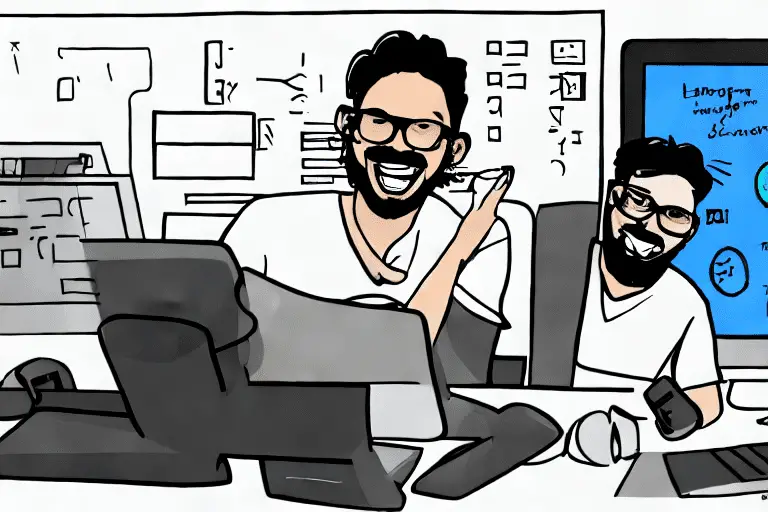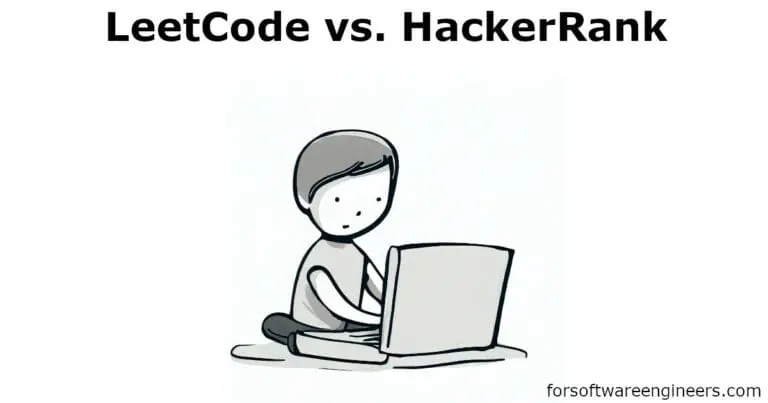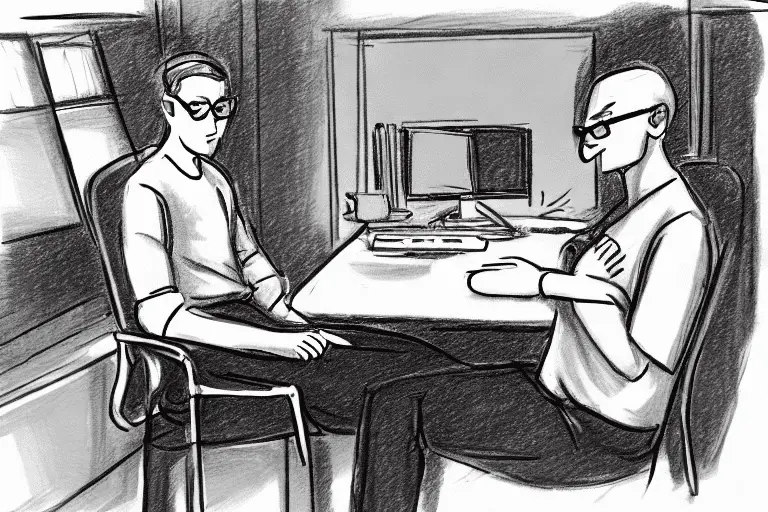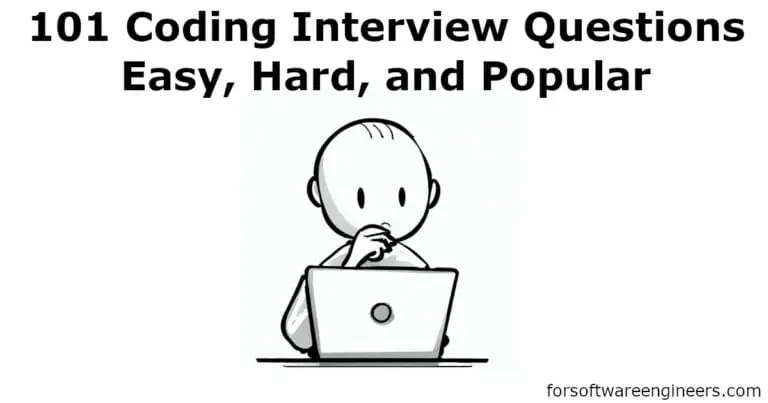How To Succeed In A Final Interview? A Practical Guide (2023)
A final interview is a type of interview that is the last interview or a part of the last interviews you’re given in a hiring process. They’re typically the most difficult and require more time to prepare for to pass than other interview stages.

In this article, we’ll be discussing what final interviews are in more detail, explaining what you should expect in them, their purpose, and additional ways they’re different from other types of interviews. Subsequently, we will discuss tips for passing final interviews and increasing your probability of getting a job offer through tips related to interpersonal skills (for everyone) and technical skills (for technical job roles like software engineers).
What Is A Final Interview?
A final interview (also known as “last interview” and “final round interview”) is a type of interview that a company conducts as the final stage of a hiring process. It lasts approximately 30 minutes to an hour, depending on the company. In some cases like for software engineers in the tech industry, a group of final interviews are given to a candidate on a date and are known as “final round interviews”. It is arguably the most difficult and intensive type of interview, and important to prepare for if you want to succeed.
Within this format of interviewing, you interview with types of employees who are closely tied to the work you would be doing in the role you’re applying for. For example, for software engineers, this would be an interview with a particular team with an open role or an experienced software engineer. The interviewer’s feedback from a final interview is typically weighted more heavily towards a hiring decision compared to interview results from prior interview rounds.
What Should You Expect In A Final Interview?
During a final interview, you should expect to answer questions that are closely related to the work you would be doing in the role you are interviewing for. For instance, a retail cashier would be expected to answer common behavioral interview questions and a software engineer would be expected to code answer to coding interview questions. When answering behavioral questions, you should expect to answer them in the STAR (situation, task, action, result) framework.
While answering the questions your interviewers are giving you during a final interview, you should expect to receive many follow-up questions based on the answer you’re giving. This is the help the interviewers better understand your skills, abilities, and behaviors.
What Is The Purpose Of An Final Interview?
The purpose of a final interview (or final round interviews) is to gather the strongest and most accurate information about a candidate in order to deliver a final hire or no-hire decision. This is why a final interview is different from other types of interviews and is important to prepare for.
How Is A Final Interview Different From Other Interviews?
A final interview is different from other interviews in the sense that your performance on it is weighted higher than earlier stage interviews and the contents of the interview are closely related to the role you’re applying for. Additionally, the rate of passing a final interview is significantly lower than the rate of passing earlier stage interviews like a phone screening interview.
For context, on average, one in five candidates passes and receives offers after a final round interview.
How Do You Pass A Final Interview?
You pass a final interview by exemplifying to your prospective employer that you’re a great candidate for the roles they’re hiring for based on the skills and experience they’re looking for. Employers typically expect their interviewees to express analytical, teamwork, leadership, and interpersonal communication skills, within their evaluation rubrics to get hired for the job. If it’s a final interview interview for a technical role like a software engineer, then employers will expect you to express your technical skills as well.
In the sections below, we discuss practical steps you can follow as an interviewee to improve your chances of passing a final round interview and getting hired. For each of the steps, we’ll define what it means and why it’s helpful to demonstrate to your employer that they should hire you.
1. Listen To The Interviewer, Carefully
Listening in a final interview carefully means focusing intently on what your interviewer is saying, and understanding what they say instead of assuming what they say.
Listening carefully to your interviewer will allow them to understand that you’re a good listener who can understand and fulfill tasks correctly. It allows them to get the best hiring signals they can from your answers as well if you’re able to understand what they’re saying before thinking and speaking.
2. Communicate Clearly and Confidently
Communicating clearly and confidently in a final interview means articulating and vocalizing your thoughts in a straightforward way, without hesitation. Clearly communicating in a confident way allows you to express to your final round interviewers that you understand the subject being discussed and can convey information effectively. This is a form of expressing soft skills or interpersonal skills.
3. Maintain Respect
Maintaining respect in a final interview means treating the interviewer with courtesy and respect. Examples of this include not talking over an interviewer, not interrupting an interviewer, and not being aggressive toward what anyone says.
Maintaining respect during a final interview allows you to demonstrate that you’re a respectful person who can work well with others to your interviewer.
4. Show Appropriate Body Language
Showing appropriate body language in a final interview means presenting yourself with open and positive body gestures such as maintaining eye contact, having your body face the interviewer who is talking, and expressing your body in a way that shows you’re being present in the interview.
Appropriate body language communicates traits such as enthusiasm, attentiveness, and professionalism to your interviewer, which are key signals they look for when hiring candidates.
5. Prepare An Appropriate Outfit
Preparing an appropriate outfit for a final interview means wearing clothes that fit the company’s culture and the role you’re applying for. Dressing appropriately signals to the interviewers that you’re serious about the position and understand the company’s values and standards. It also helps set a good first impression that amplifies the expression of your other positive skills and traits that you show during an interview.
Are A Software Engineer’s Final Interviews Technical?
Yes, a software engineer’s final interviews are technical. More specifically, a software engineer’s final round of interviews is composed of 2 to 3 coding interviews, 1 or 2 behavioral interviews, and up to 2 system design interviews. The exact ratio of the types of interviews depends on a software engineering job role’s expected experience level. Listed below are examples of final round interview compositions per software engineer experience level.
- Entry-Level Software Engineer: 3 coding interviews and 2 behavior interview
- Mid-Level Software Engineer: 2 coding interviews, 1 system design interview, and 2 behavior interviews
- Senior-Level Software Engineer: 1 coding interview, 2 system design interviews, and 2 behavior interviews
How Do You Prepare For Technical Final Round Interviews?
You prepare for technical final-round interviews by understanding what each of the interview rounds (in terms of coding, systems design, and behavior) requires for you to pass. For instance, you’ll need to know how to solve coding interview problems for the coding interview, understand how to design efficient systems for a systems design interview, and learn the essential behaviors companies look for in engineers for the behavioral interview.







